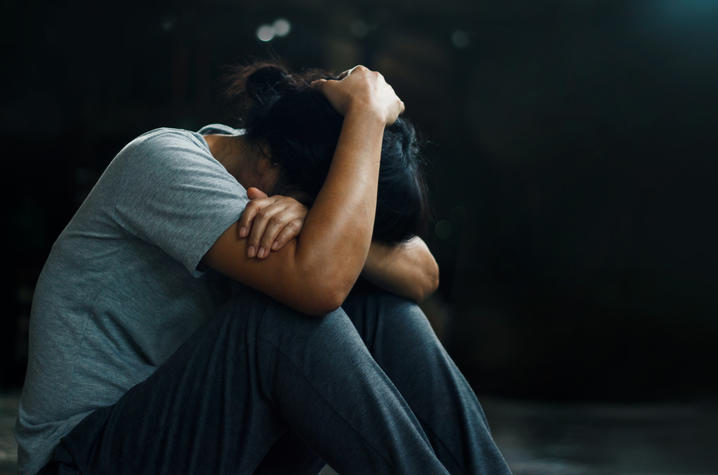Understanding Post Traumatic Stress Disorder — When to Get Help

The University of Kentucky Public Relations and Strategic Communications Office provides a weekly health column available for use and reprint by news media. This week's column is by Baillie McCane, Injury Prevention and Outreach coordinator, UK HealthCare Trauma/Surgical Services.
LEXINGTON, Ky. (Sept. 7, 2021) — Post-traumatic stress disorder can develop when a person experiences a shocking, scary or dangerous event. These events can include violent personal assaults, natural or human-caused disasters, accidents, combat and various other forms of violence.
The UK HealthCare Outpatient Child and Adult Psychiatry Clinic has seen an overall increase in anxiety disorders associated primarily with the COVID-19 pandemic, between issues with infection, the strain of lockdown and fears of reintegrating into the world with work and school. Many of the new PTSD cases at UK HealthCare are also associated with first responders and health care workers due to the recent influx of critically ill patients.
Most people experience a range of reactions after a traumatic event, but many recover from the symptoms naturally. The diagnosis of PTSD occurs when the symptoms become chronic.
To be diagnosed with PTSD, an adult must have all of the following for at least one month:
- At least one re-experiencing symptom.
- At least one avoidance symptom.
- At least two arousal and reactivity symptoms.
- At least two cognition and mood symptoms.
PTSD is an often stigmatized and/or misunderstood mental health issue in which symptoms can occur for months or years after the traumatic event. Raising awareness can help both individuals and professionals discover ways to identify and manage PTSD symptoms.
Severe cases of PTSD can lead people to feel like there is no hope. If you or someone you love are in crisis and thinking about suicide, know that there are resources available to help. You can call the National Suicide Prevention Lifeline at 1-800-273-TALK (8255), or text the Crisis Text Line (text HELLO to 741741). Both services are free and available 24 hours a day, seven days a week. The Veterans Crisis Line connects service members and veterans in crisis, as well as their family members and friends, with qualified Department of Veterans Affairs responders through a confidential toll-free hotline, online chat or text messaging service. Dial 1-800-273-8255 and press 1 to talk to someone or send a text message to 838255 to connect with a VA responder.
As the state’s flagship, land-grant institution, the University of Kentucky exists to advance the Commonwealth. We do that by preparing the next generation of leaders — placing students at the heart of everything we do — and transforming the lives of Kentuckians through education, research and creative work, service and health care. We pride ourselves on being a catalyst for breakthroughs and a force for healing, a place where ingenuity unfolds. It's all made possible by our people — visionaries, disruptors and pioneers — who make up 200 academic programs, a $476.5 million research and development enterprise and a world-class medical center, all on one campus.




